by Jocelyn Watkin | Feb 4, 2020 | Information
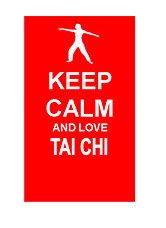 Please note: This is a post from February 2020.
Please note: This is a post from February 2020.
If the year already feels likes it is passing in a blur, then tai chi could be for you. At Kia Ora Tai Chi, we can teach you techniques that will help slow things down, relieve and release stress, while increasing your fitness and well-being.
If this sounds like something you want then the team at Kia Ora Tai Chi would love to hear from you. We are looking for adults of any age and ability, who are keen to make a regular commitment to learning tai chi.
To find out if tai chi is for you, please come along to one or both of the free sessions on Monday 17th and Wednesday 19th February, 2020, 6.30-7.15pm, in Manurewa.
To RSVP or to ask questions about the classes, please use the Contact Form
Learning these proven tai chi techniques to clear and calm your mind won’t happen overnight. After the free sessions, you’ll need to make a commitment to attend classes once per week.
Cost of classes: The classes on the 17th and 19th February 2020 are FREE. After that, prices start from $9.50 per class. A discount is available for those who are referred by ACC and Age Concern for the Community Group Strength and Balance Exercise programme (“Live Stronger for Longer”). You must be aged 65+ to be referred.
What to wear: Please wear loose comfortable clothing and flat-soled shoes (such as sneakers, trainers or tennis shoes). Please also bring a drinking bottle of water.
Here at Kia Ora Tai Chi, we are all constantly amazed at the health improvements that our students tell us about once they attend our classes on a regular basis:
- sleeping better at night
- feeling better all over and less stressed
- improved breathing, with less wheezing or feeling like they’ve ‘run out of breath’
- finding it easier to go up and down stairs
- playing with their children or grandchildren for longer without getting tired
- lowering their high blood pressure
- feeling more flexible and moving better with less aches and pains
- better balance/less falls
- toned muscles.
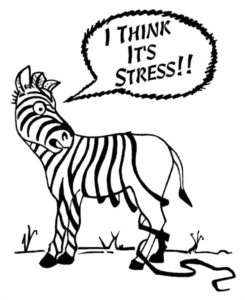
Learn how to reduce stress with tai chi
There have been hundreds of clinical studies over many years that confirm the health benefits of tai chi, especially for the Tai Chi for Health programmes that we teach at Kia Ora Tai Chi. You can read more about these clinical studies here.
One aspect consistent across all studies and trials is that none of these benefits happen overnight or after just one class. The trials take place over several weeks, sometimes several months, and the people being studied do tai chi at least 2 -3 times per week.
Most of our students attend at least one class per week, often two, and several practice between each class.
We are now looking for a group of new beginners who accept that their health and well-being is worth a regular commitment to tai chi.
Find out more about Kia Ora Tai Chi classes, how to get to the venue, and what to expect.
Discover more health benefits from tai chi.
Want to know even more about tai chi? Click here
Please RSVP for the free classes on the 17th and 19th February 2020 by using the Contact Form. You are welcome to attend one one or both of these classes.
Come along and say kia ora. We’d love to see you. We’re a friendly bunch at a great venue that has lots of free parking.
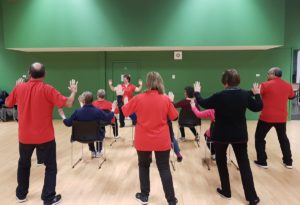
A Kia Ora Tai Chi class
by Jocelyn Watkin | Aug 26, 2019 | Information
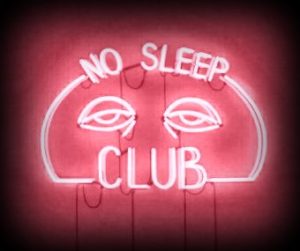 It’s a night club, but there’s no dancing or happiness. The ‘No Sleep Club’ is no fun at all. It feels like you are stuck at the Hotel California – “You can check out any time you like, but you can never leave”. [Lyrics by The Eagles, 1977]
It’s a night club, but there’s no dancing or happiness. The ‘No Sleep Club’ is no fun at all. It feels like you are stuck at the Hotel California – “You can check out any time you like, but you can never leave”. [Lyrics by The Eagles, 1977]
However, Dr Giresh Kanji has discovered five keys, any of which will open the door to the escape route.
After decades of research, literature searches and clinical trials, Dr Kanji identified the following activities (the keys) to escape insomnia. These also help with depression and anxiety, which are often closely related to insomnia:
- Tai chi
- Meditative breathing
- Exercise that is at least slightly rigorous
- Sauna
- Yoga
There were no surprises for me to discover that tai chi is in the Top 5. Nearly all of my students (and me) comment on how much better they sleep after a tai chi class.
Note: not one of the five activities includes medication or hospital visits.
You don’t have to do all of the activities listed above, just pick one and get started. Fortunately, with tai chi you can win the trifecta as the first three activities listed above are packaged together when you learn tai chi. If you’re doing tai chi in our humid January and February weather, you might even get something close to sauna conditions, too. 🙂
Find out more about why and how these five activities [habits] work by watching this TV interview with Dr Kanji. It is just under 5 minutes duration. Or you can clilck on this link: https://youtu.be/F8GIgJ3fM7M
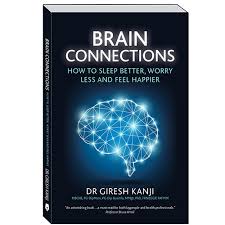 Dr Kanji has written a book called: “Brain Connections: How to sleep better, worry less and feel happier” where he explores the role of childhood trauma, stress, and the links between stress-related symptoms and fatigue, concentration and dementia. He outlines the five habits [activities] that reduce the activity of the stress brain and improve insomnia, anxiety and depression. Click here for options on where to buy it.
Dr Kanji has written a book called: “Brain Connections: How to sleep better, worry less and feel happier” where he explores the role of childhood trauma, stress, and the links between stress-related symptoms and fatigue, concentration and dementia. He outlines the five habits [activities] that reduce the activity of the stress brain and improve insomnia, anxiety and depression. Click here for options on where to buy it.
Dr Kanji is a New Zealander and a graduate of the Otago Medical School. His is a musculoskeletal pain specialist and researcher. He explored the sensory amplification of pain in his PhD including the role of the human stress response.

Dr Giresh Kanji
He is an honorary Senior Lecturer at Auckland University, the chairperson of the NZ Pain Foundation and editor of Australasian Musculoskeletal Medicine. To find out more about him: https://gireshkanji.com/dr-giresh-kanji
Find out more:
by Jocelyn Watkin | Jul 8, 2019 | Information

Sadly, there is no magic, instant cure for the common cold.
Depending on your immune system, plus how much time and rest you can give yourself, most people will overcome a cold virus in just over a week or so.
However, being aware of the risk factors of catching a cold and reducing those risks can help avoid or reduce the severity of a cold.
There are five broad risk factors:
- Lack of sleep
- Stress
- Age
- Season
- Smoking
Tai chi can really help with the first three.
Sleep: Rest and getting enough sleep is vital for good health. Nearly everyone who attends my tai chi classes mentions how they always get a better night’s sleep after class. It’s not just the exercise that helps you to sleep. It’s also the calming effect of the deep breathing and the slow, smooth continuous movements of tai chi.
If you do get a cold or other illness, try to rest and sleep as much as possible as it will help with your recovery.
Stress: Relieving stress goes hand-in-hand with rest and a good night’s sleep in terms of helping to reduce the risk of catching a cold. Numerous studies and clinical trials have proven the tai chi can reduce stress
Studies at Carnegie Mellon University in Pittsburgh suggest that psychological stress can raise your risk of developing a cold. They suggest it affects how the stress hormone cortisol works. This hormone regulates inflammation in your body. When you’re under stress, cortisol may be less effective at managing your body’s inflammatory response to the cold virus. This may cause you to develop a cold. Read more about this
To minimise stress Carnegie Mellon University recommends a number of techniques, which include tai chi. Discover these techniques
Click here to read an article I wrote on how to use tai chi breathing to bust stress in just a few minutes per day.
Age: Children and older people are more at risk of getting a cold. In children, this is because their immune systems are not fully developed. In older adults, it is because their immunity levels drop as part of the ageing process. Clinical trials have concluded that regular sessions of tai chi may boost the immune systems of older adults and could also help to improve the effectiveness of vaccines, including the ‘flu vaccine. You can read more about these trials here:
Season: Just because the weather is cold, doesn’t mean you’ll get a cold. However, you’ll probably spend more time indoors in the winter months and that means more ‘rubbing shoulders’ with other people. You can lower your risk with good hygiene like washing your hands and lower the risk to others by staying home when you are sick and covering your nose and mouth when you sneeze or cough.
Smoking: Smoking compromises your immunity levels and second-hand smoke can disrupt immunity in others. If you smoke, talk to your health professional about how to quit.
While some risk factors are hard to control, others can be managed. Regular practice of tai chi could lower your chances of catching a cold.
Read more about the risk factors for the common cold here
Related information: A cold fact: High stress can make you sick
by Jocelyn Watkin | May 17, 2019 | Information
 Your brain while meditating – calm, clear and confident. Your brain doing tai chi – calm, clear, and confident. This is no coincidence. Even my newer students notice how the more experienced students ‘get in the zone’ when doing tai chi. They want that, too. Don’t we all??
Your brain while meditating – calm, clear and confident. Your brain doing tai chi – calm, clear, and confident. This is no coincidence. Even my newer students notice how the more experienced students ‘get in the zone’ when doing tai chi. They want that, too. Don’t we all??
Ah, mawhitiwhiti iti (little grasshoppers), the key is in the breathing. With tai chi you learn how to match your breath with your movements.
I’ve dug out a great article to help you understand how it works:
“… Both tai chi and mindfulness meditation focus your attention on the breath. That single focus may help your brain make lasting changes that impact the way you see (and cope) with things.
Research has found that both tai chi and meditation have a powerful effect on the mind, cultivating a stillness that serves to increase focus, reduce stress, and boost cognitive skills.” Read on
Wait there’s more! This research has also shown that tai chi can train your brain and improve your life in three ways. This is because tai chi:
- grows the size of your brain, even when you are no longer a child (or even young)
- improves your memory and ability to stay focussed
- shakes off stress.
Keep practising and you too will enter the zone. Click here to discover more about this research into tai chi.
by Jocelyn Watkin | Jan 27, 2019 | Information
 Please note: This is a post from February 2019:
Please note: This is a post from February 2019:
Free tai chi classes for beginners on Monday 11 February and Wednesday 13 February 2019, 6.30 – 7.15pm in Manurewa.
There is lots of free parking. Click here for more information and a map.
After the free classes, a new beginners class will start on Monday 18 and Wednesday 20 February 2019. Same time and same place.
Tai chi is enjoyable, easy on your joints, flowing and will help you increase your fitness, reduce stress, improve your balance and stay stronger for longer. It is ideal for complete beginners and suitable for adults of any age and high school students. Seated tai chi is also available.
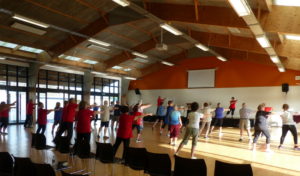
Come along and give it a try with a friendly bunch of people at a great venue.
Classes are taught by Jocelyn Watkin, a fully-qualified, premier instructor with the Tai Chi for Health Institute. She is supported by a team of assistant instructors, who are also qualified.
Find out more on what to wear and what to expect at the classes.
To RSVP please text or phone the instructor, Jocelyn Watkin on 027 493 9851 or use the Contact Form

All of these Tai Chi for Health classes are approved with the BIG TICK for ACC and Age Concerns’ Community Group Strength and Balance Programme so you can stay “Stronger for Longer”
 Please note: This is a post from February 2020.
Please note: This is a post from February 2020.

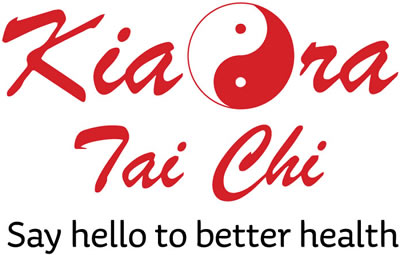
 It’s a night club, but there’s no dancing or happiness. The ‘No Sleep Club’ is no fun at all. It feels like you are stuck at the
It’s a night club, but there’s no dancing or happiness. The ‘No Sleep Club’ is no fun at all. It feels like you are stuck at the  Dr Kanji has written a book called:
Dr Kanji has written a book called: 

 Your brain while meditating – calm, clear and confident. Your brain doing tai chi – calm, clear, and confident. This is no coincidence. Even my newer students notice how the more experienced students ‘get in the zone’ when doing tai chi. They want that, too. Don’t we all??
Your brain while meditating – calm, clear and confident. Your brain doing tai chi – calm, clear, and confident. This is no coincidence. Even my newer students notice how the more experienced students ‘get in the zone’ when doing tai chi. They want that, too. Don’t we all??
